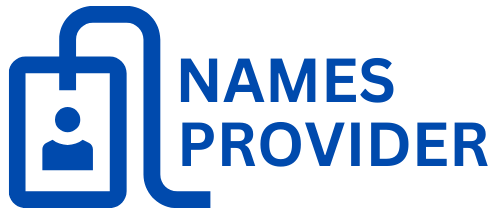Key Takeaways
- Prioritize your needs and budget before starting your home search.
- Research local market trends to spot the right opportunities.
- Evaluate neighborhood factors like schools, amenities, and future growth.
- Understand the full cost of ownership, from mortgages to maintenance.
- Working with trusted professionals makes the process smoother and more efficient.
- Leverage online resources and data for better decision-making.
Why Smart Choices Matter in Home Buying
Purchasing a home is a significant life event that affects personal finances, lifestyle, and long-term well-being. Today’s real estate market presents a landscape shaped by fluctuating interest rates, evolving buyer needs, and local trends that can change rapidly and unexpectedly. Making a hasty choice can lead to regrets, unexpected expenses, or even future moves, while taking a thoughtful, well-informed approachhelps ensure satisfaction for years to come. For example, starting your search by looking through reputable listings, such as Rumson homes for sale can offer valuable insights. Still, the decision-making process should always extend beyond the listings themselves.
Smart home buying is all about striking a balance between information and intuition. Whether you’re relocating for work, looking to upsize as your family grows, or investing in your long-term future, taking the time to understand the process sets the foundation for a happy, stable home life. Thorough research and thoughtful analysis of your options remove much of the stress and doubt from an inherently big decision.
Prioritizing Needs vs. Wants
Every home search begins with a wish list, but not all desires carry equal weight. The key to a successful search is distinguishing between what you can’t compromise on (needs) and what would be nice to have (wants). For instance, if you have a large family, the number of bedrooms and bathrooms becomes non-negotiable. If you work remotely, a quiet home office is essential. Other features, like a pool or walk-in pantry, may be appealing but can always be added later or found elsewhere.
- Begin by sitting down with whoever will share the home and have each person write a list of must-haves versus like-to-haves.
- Focus on elements tied to lifestyle, safety, comfort, and long-term functionality. Ask yourself what you use the most in your current home.
- Be flexible about items like paint color, landscaping, or even kitchen upgrades—these cosmetic elements can often be modified once you move in.
Many buyers start their search with a broad vision but eventually adjust their expectations. According to Zillow’s buyer and seller research, most homebuyers make at least one compromise, often on items like square footage or backyard size. When you’re clear on your priorities from the start, it’s easier to spot the right home and to avoid second-guessing your decision afterward.
Understanding Local Real Estate Markets
Local real estate markets fluctuate in response to seasonal trends, economic factors, and shifting buyer demand. For example, buyers in fast-growing areas may find that homes sell almost as soon as they’re listed, while slower markets may offer more room for negotiation. Understanding the nuances of your target location helps you prepare a strong offer and anticipate whether you’ll face competition or have more choices. Digging into statistics such as average days on the market, recent sale prices, and inventory levels will help you move from intuition to informed action.
- Explore recent comparable sales to gauge whether prices are trending up or down.
- Note which types of homes move quickly—is there more demand for condos, single-family homes, or new construction?
- Stay aware of new developments, zoning changes, or local infrastructure projects that could boost desirability or impact property values down the road.
For reliable insights, resources such as the National Association of Realtors’ quick market statistics are invaluable. These data points provide a window into real-time trends, allowing you to adjust your expectations and timing, making negotiations less daunting and more opportunistic.
Evaluating Neighborhood Amenities and Lifestyle Fit
The perfect home isn’t just about what’s inside the four walls—the surrounding neighborhood often determines your day-to-day happiness. When choosing between two otherwise similar properties, the one that provides easy access to work, schools, parks, shops, or public transit may deliver far greater satisfaction. The rise of remote work has also prompted many buyers to prioritize walkability, community culture, and safe outdoor spaces.
- Scan school rankings online, keeping in mind both current and future educational needs.
- Assess proximity to hospitals, shopping centers, gyms, and transportation hubs to minimize the need for frequent long-distance driving for basic needs.
- Research plans for new businesses, public projects, or zoning changes—these can affect both your experience and property values.
Embracing the lifestyle component of home buying ensures your new property supports the daily routines and leisure activities that matter to you. It’s well worth taking several walks or drives through a neighborhood at different times of day or on weekends to see if it really “feels right.”
Budgeting for the True Cost of Homeownership
For most buyers, the price of the home is just the beginning. The true cost of ownership extends to insurance, property taxes, utilities, routine maintenance, and unplanned repairs. According to industry sources, annual upkeep costs average between 1% and 4% of your home’s value. For a home valued at $400,000, expect at least $4,000—and possibly much more—every year to keep things running smoothly. Factor in expenses like new appliances, emergency fixes, or community association dues, and it’s easy to see why building a buffer into your budget is critical.
- Draft a monthly budget covering mortgage payments, taxes, utilities, association dues, and an emergency maintenance fund. When calculating utility expenses, take time to research the cheapest electricity in texas to help lower your overall monthly costs. Even small savings on recurring bills can free up funds for home improvements or other financial priorities.
- Prepare for future expenses—will you need a new roof, updated furnace, or landscaping improvements?
- Revisit your budget regularly to account for changes in household income, needs, or property taxes.
Prioritizing financial clarity from the start means fewer surprises and more long-term security, protecting both your investment and your peace of mind.
The Role of Professionals in the Process
Having trustworthy professionals in your corner can make all the difference when purchasing a home. Real estate agents understand local markets, negotiate on your behalf, and guide you through a maze of paperwork. A seasoned realtor Brampton can provide hyper-local insights, helping buyers navigate neighborhood trends and secure the best deals. Home inspectors spot problems invisible to the untrained eye, helping you avoid costly mistakes, while real estate attorneys ensure contracts are fair and transactions stay on track. Though online resources have empowered buyers, the expertise and oversight that professionals bring to the table can’t be overstated.
- Meet with several agents, asking pointed questions about local trends, their negotiation style, and their support system.
- Always schedule a thorough inspection before closing, regardless of the age of the home. Undiscovered issues with plumbing, wiring, or structural components can lead to major headaches down the line.
- Use legal counsel when dealing with complex contracts, easements, or contingency clauses, especially on higher-value transactions.
Turning to professionals doesn’t just save time—it offers invaluable peace of mind in what is often the largest purchase of your life.
Using Technology to Your Advantage
Modern technology streamlines almost every part of buying a home. Top real estate platforms now offer immersive 360-degree virtual tours, real-time updates for new listings, and tools for comparing neighborhood data, such as walkability and crime rates. Digital mortgage calculators take the guesswork out of monthly payments, and neighborhood dashboards help buyers evaluate everything from school scores to local amenities before even scheduling a tour. Setting up alerts or even conducting initial interviews with agents online makes the search process far more manageable for busy buyers.
- Harness virtual tours to preview properties and narrow down choices before committing time to visits.
- Subscribe to email or app alerts for new or price-reduced listings in your chosen area.
- Compare recent sales data using easy-to-read dashboards, helping you strategize for negotiations with greater confidence.
When used thoughtfully, digital tools empower buyers to make decisions efficiently, sometimes even leading to a swifter, less stressful search experience than traditional methods could ever offer.
Final Considerations Before Making Your Choice
As you approach a final decision, revisit your original priorities and needs. Consider your research, budget, and gut feeling for each property. Involve family members or trusted friends, and remember that sometimes the intangible sense of “home” can weigh heavily in your final choice. Never hesitate to return to your list or ask questions of the professionals supporting your search. Informed, reflective choices today will pay off not just in a sound investment but also in the satisfaction of finding a place that truly feels like home.
When considering a new home, it’s essential to explore various locations that align with your lifestyle and financial goals. For those interested in international options, Mexico offers diverse real estate opportunities that cater to different preferences, from beachfront properties to urban living. To streamline your search and ensure you make an informed decision, you can find real estate in Mexico with Zisla. This resource provides valuable insights and listings that can help you navigate the market effectively, ensuring you choose a home that meets your needs and aspirations.




